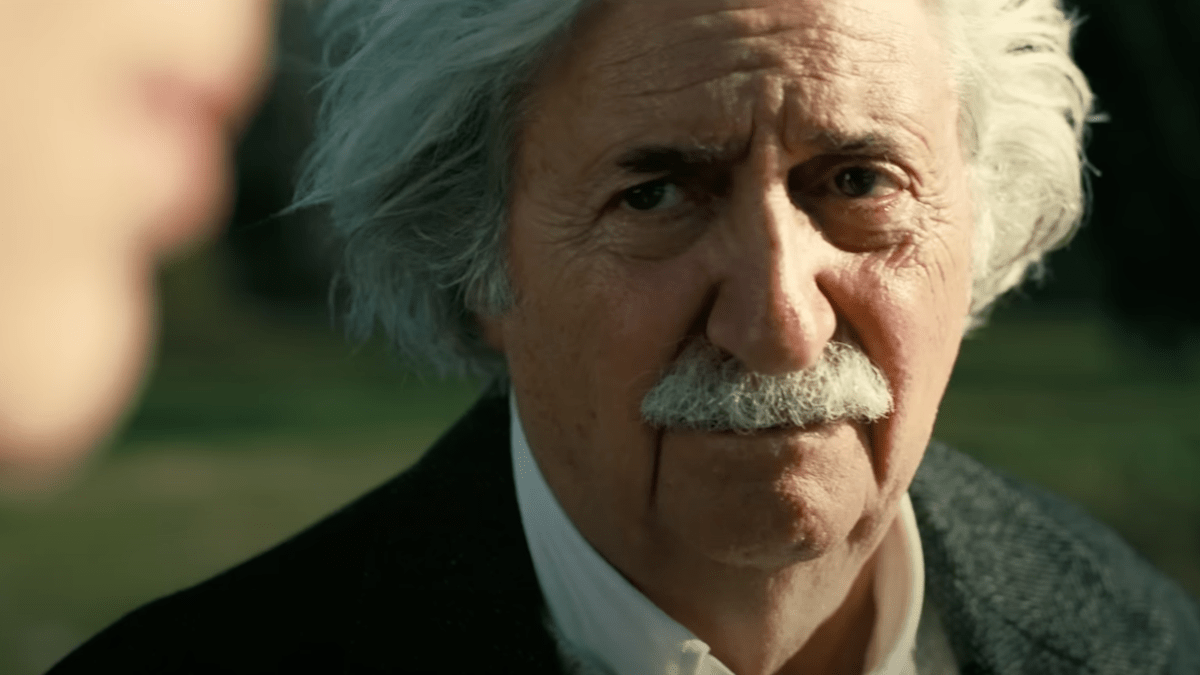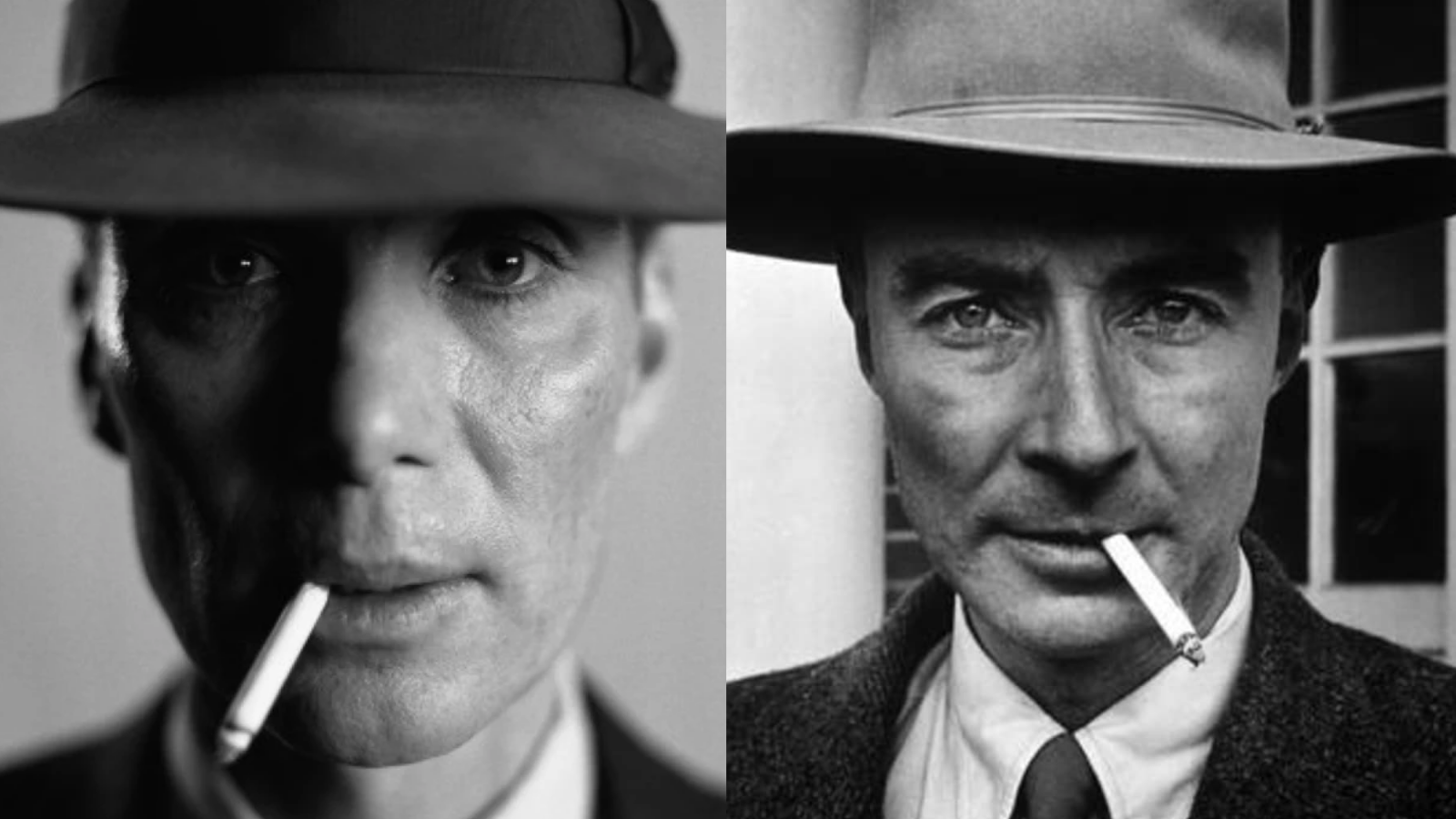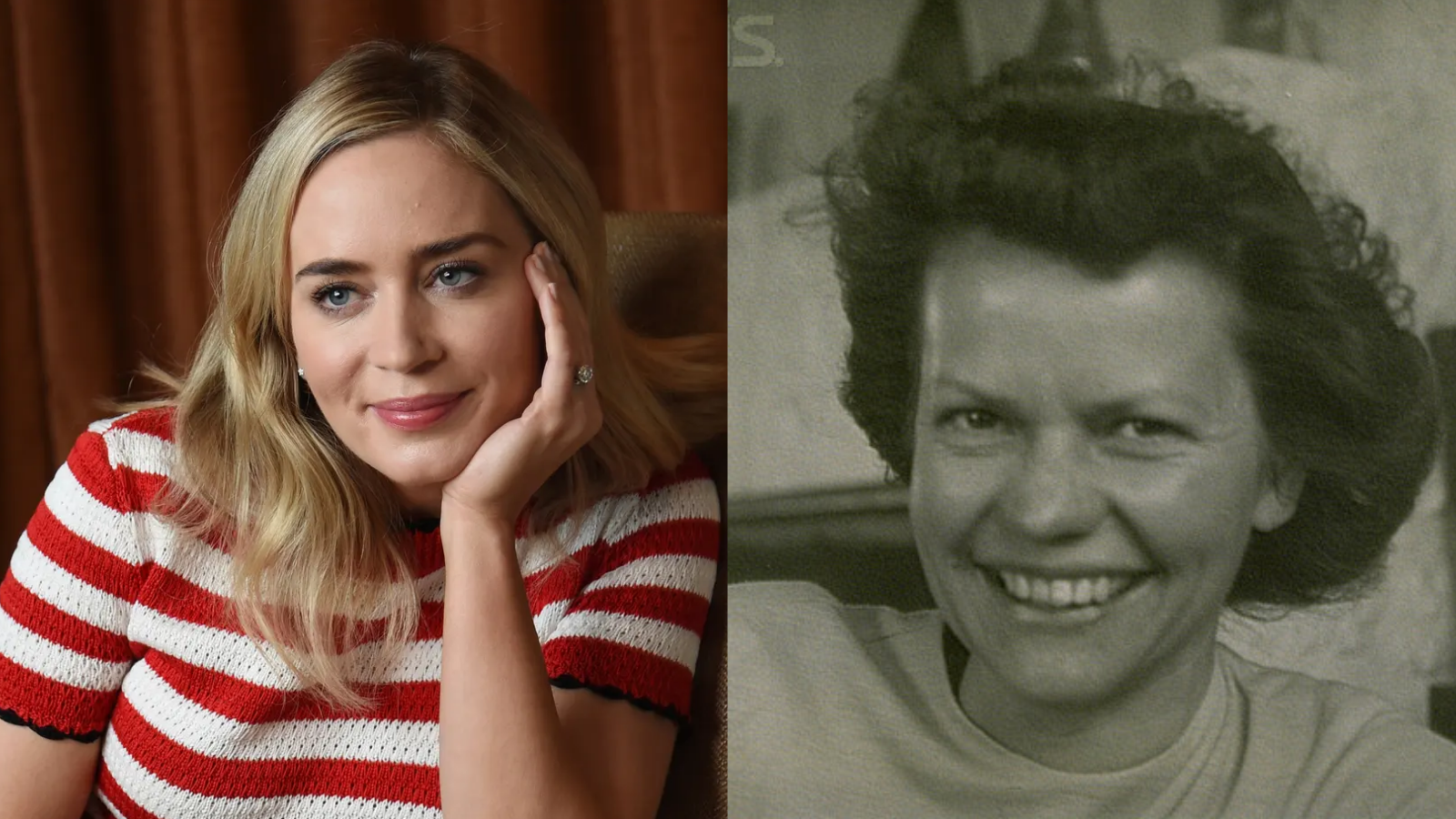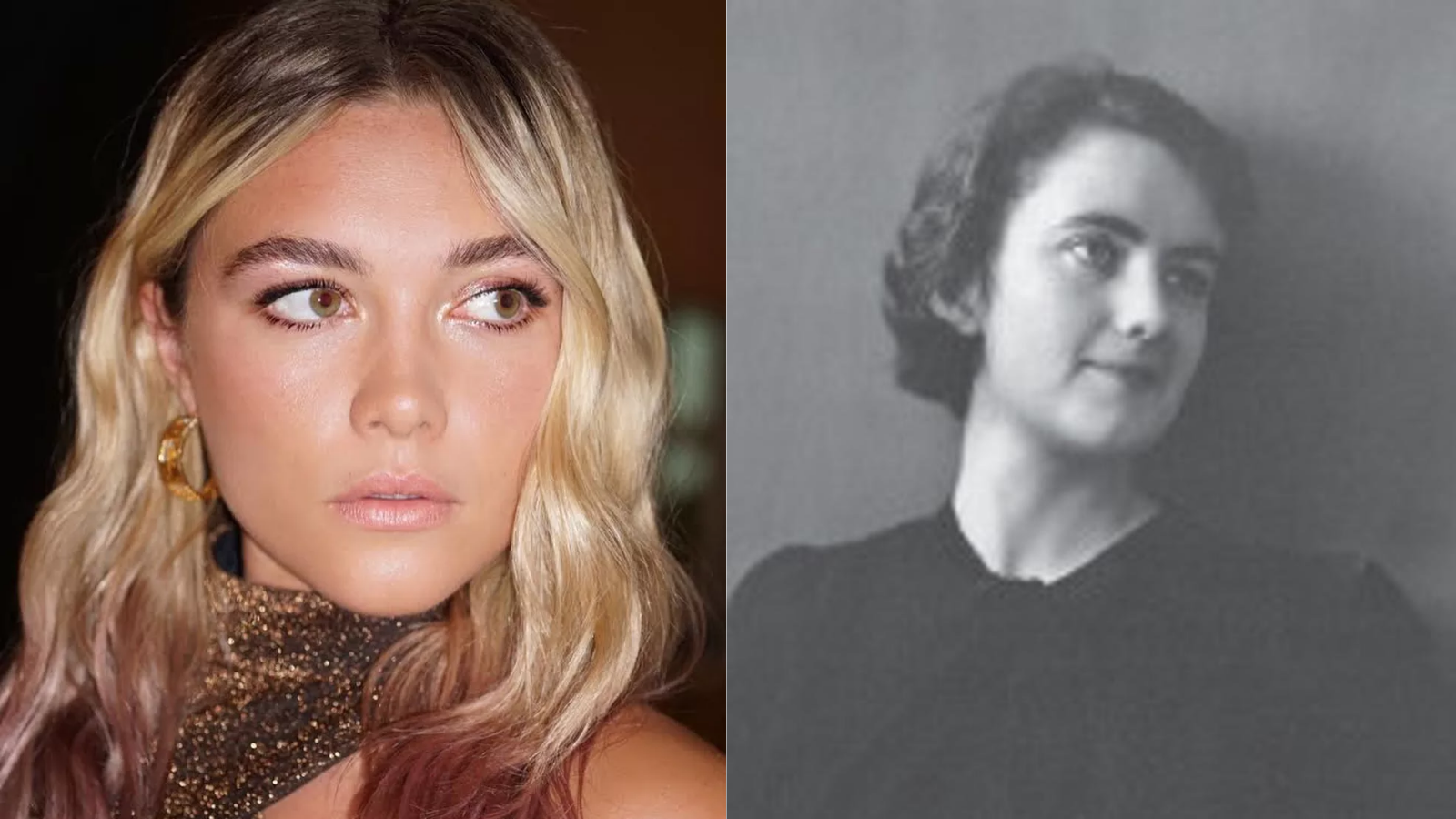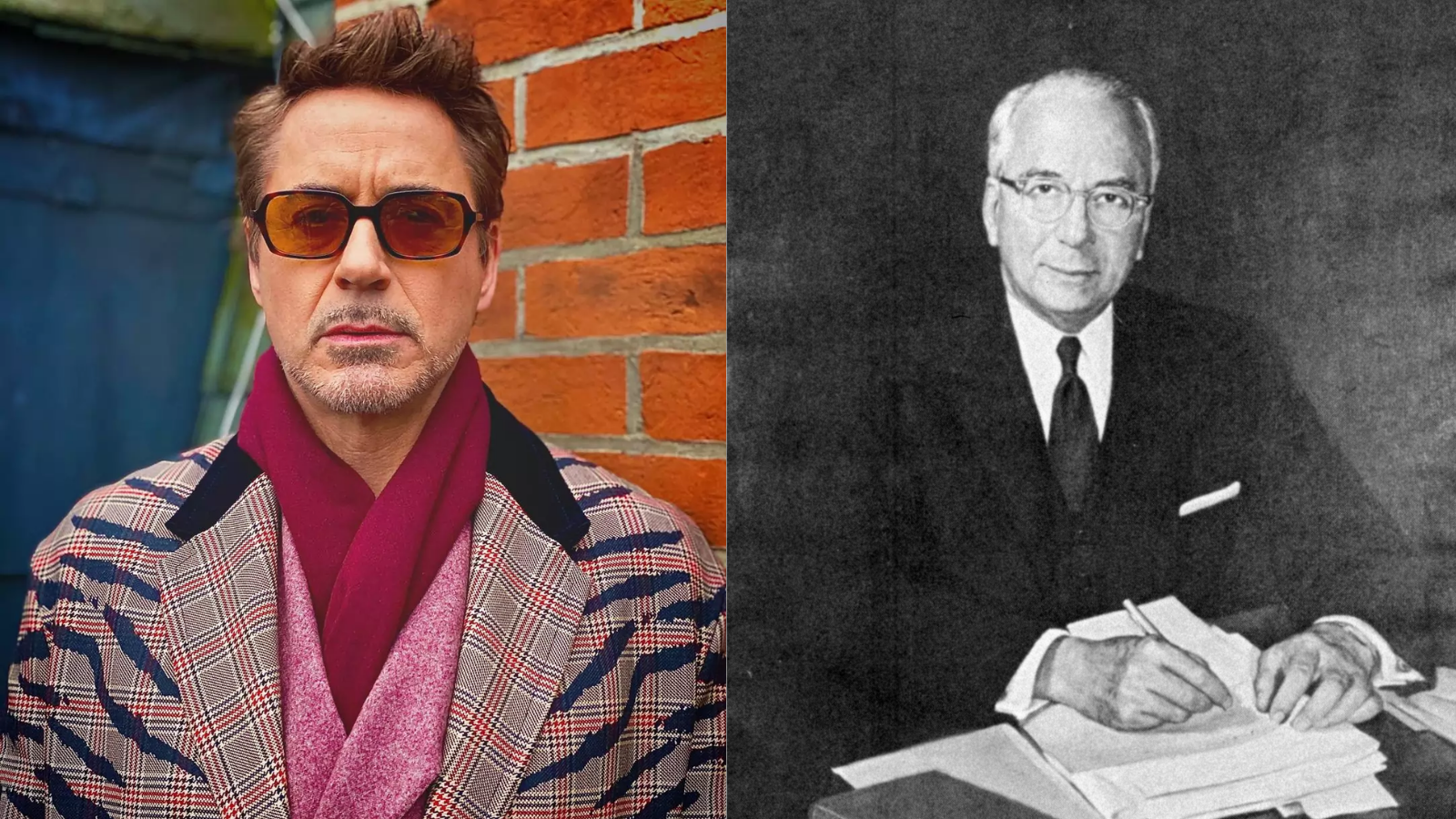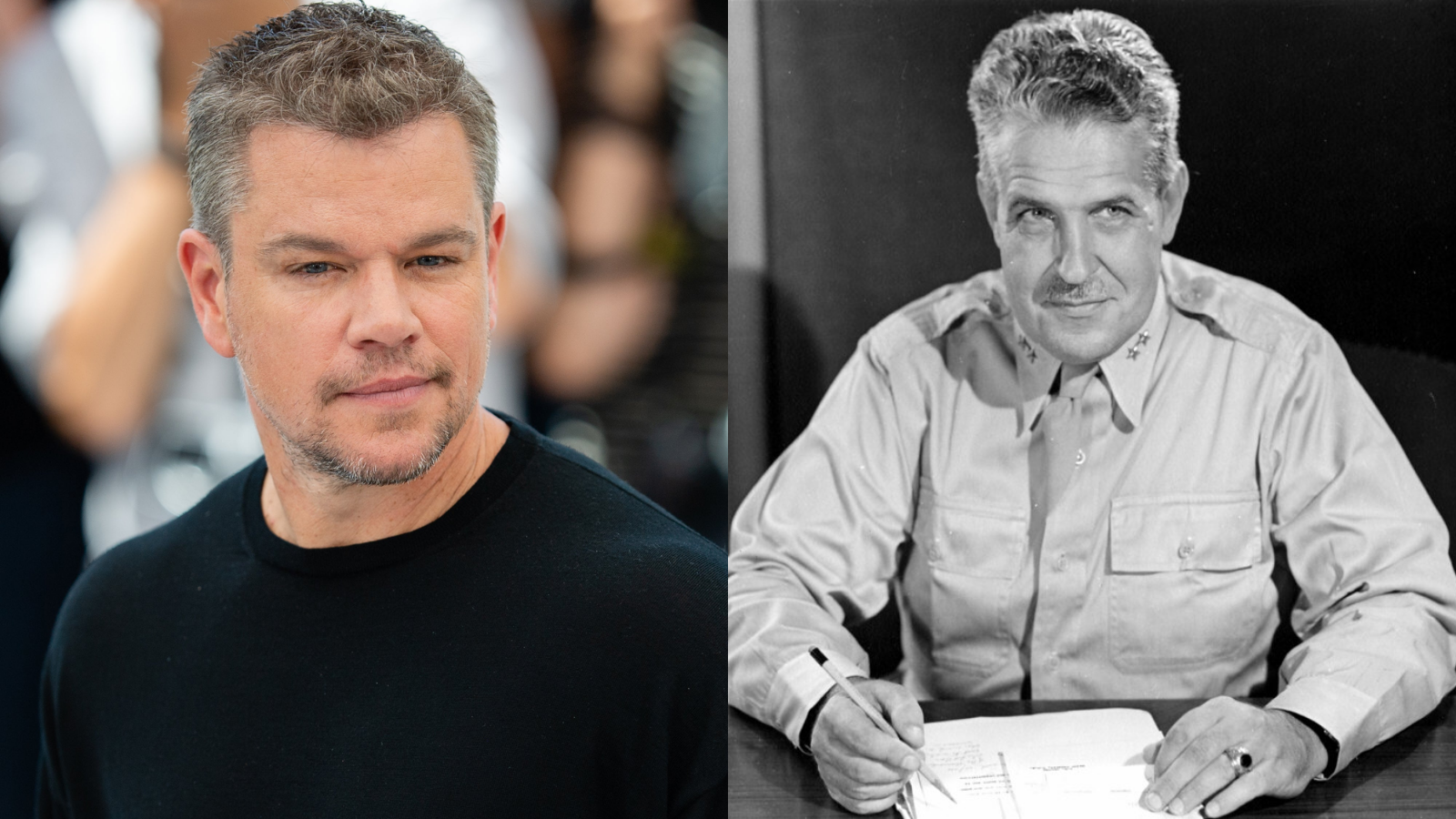One thing that moviegoers might question in Christopher Nolan’s Oppenheimer is the supposed friendship between J. Robert Oppenheimer (Cillian Murphy) and Albert Einstein (Tom Conti). Were the two historical figures friends in real life?
In real life, Oppenheimer was the lead scientist for the Manhattan Project’s secret laboratory in Los Alamos, which eventually saw the successful construction of the first nuclear weapon for the U.S. for World War II, garnering him the nickname “the father of the atomic bomb.” Einstein, on the other hand, discovered general relativity, with the famous equation “E = mc²” linking mass and energy in a way that fundamentally changed humanity’s understanding of the universe.
It is fair to say Einstein and Oppenheimer’s conversation at the pond in the movie took some poetic license, with Einstein’s struggle to keep his hat on his head on a blustery day being one likely example of the filmmaker’s own imagination. However, this may have been Nolan’s way of encapsulating the kind of conversations the pair may have had and the essence of their friendship.
You see, it is a documented fact that the pair were friends and colleagues for decades in real life. In fact, Oppenheimer even talked with Einstein prior to being deposed for a security hearing by the Atomic Energy Commission chairman Lewis Strauss (portrayed by Robert Downey Jr. in the film), one that ultimately resulted in Oppenheimer’s revocation of security clearance on suspicion of communist ties.
Before the weeks-long trial commenced, Einstein told his friend to reassure him that he was “Mr. Atomic” and that the government needed him more than he needed them. Why should it matter if the politicians don’t want Oppenheimer’s advice anymore, Einstein reasoned? Instead, he recommended Oppenheimer “just walk away.” This conversation, which took place in 1954, is according to Kai Bird, the co-author of the book American Prometheus, on which Oppenheimer is based (per Live Science).
In fact, both Einstein and Oppenheimer worked at the same university for a number of years, with Oppenheimer holding the position of the director of the Institute for Advanced Study at Princeton from 1947 to 1966. Oppenheimer himself explained in a New York Times piece he wrote in 1966 that it was only during the latter part of knowing Einstein for multiple decades, until his death in 1955, that they actually became close (per Esquire):
“Though I knew Einstein for two or three decades, it was only in the last decade of his life that we were close colleagues and something of friends.”
The pair first met each other in 1932 when Einstein visited Cal Tech “during his around the world trip of 1931–1932,” according to the 2008 book Einstein and Oppenheimer (per JSTOR).
Though Einstein co-signed a letter to Franklin Delano Roosevelt warning of the Nazi’s considerable head start for developing a nuclear bomb, which some considered to be the catalyst for the president putting into motion the research that would culminate in the Manhattan Project, his direct involvement with the bomb was pretty much nonexistent and stopped with the letter itself. As Einstein later remarked (per the American Museum of Natural History): “I do not consider myself the father of the release of atomic energy. My part in it was quite indirect.”

